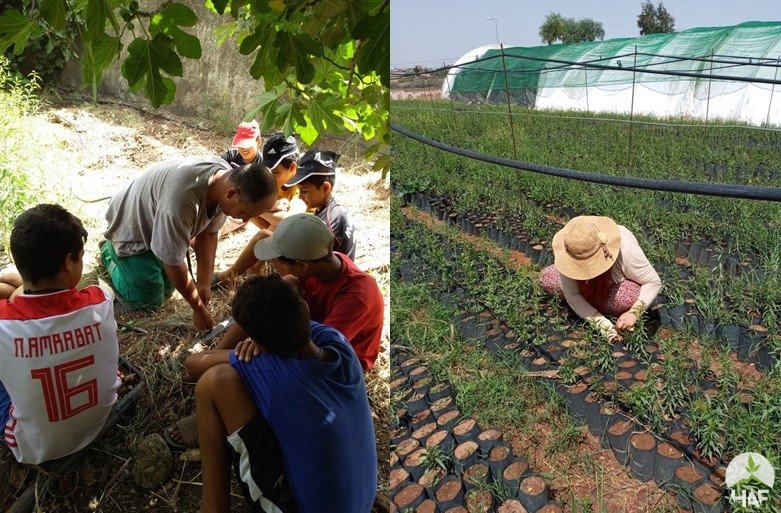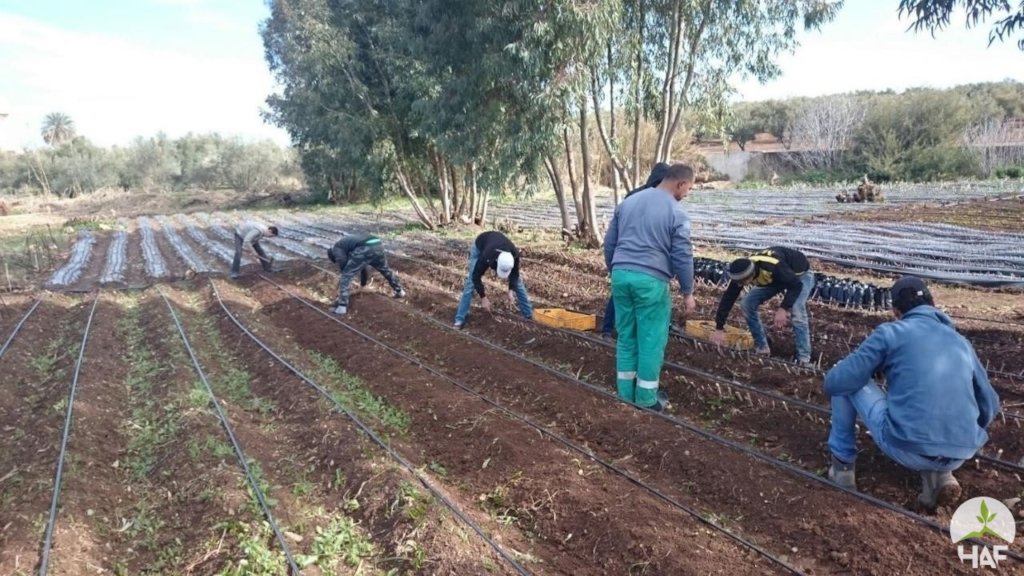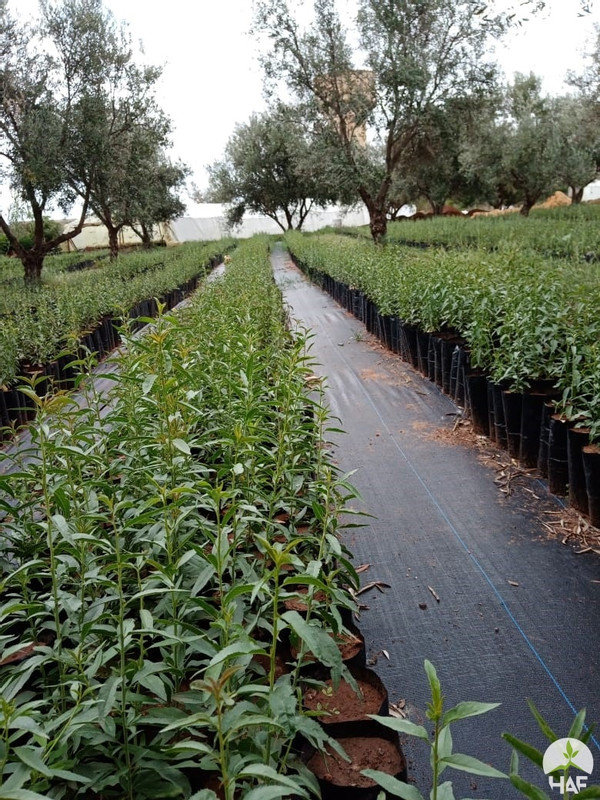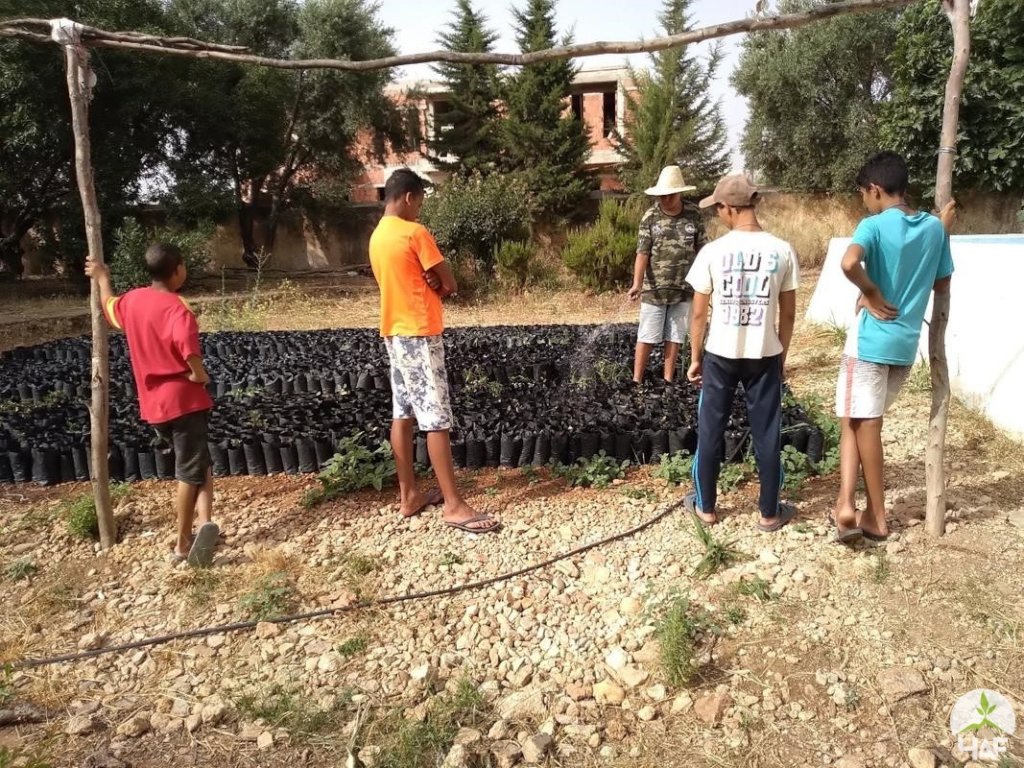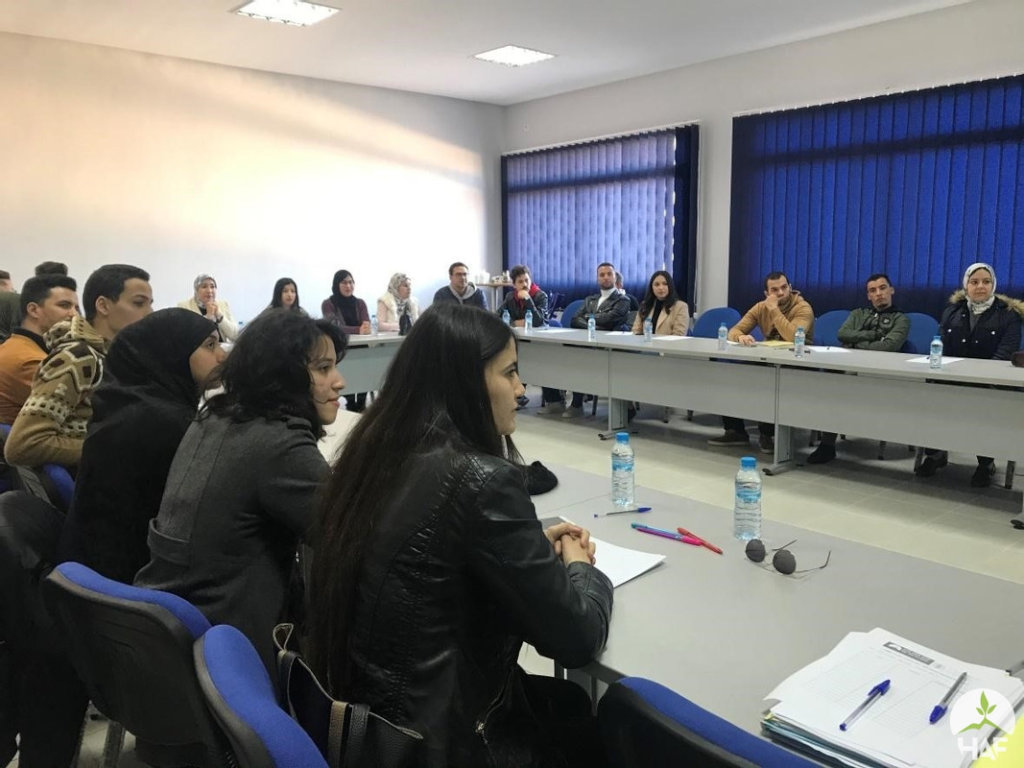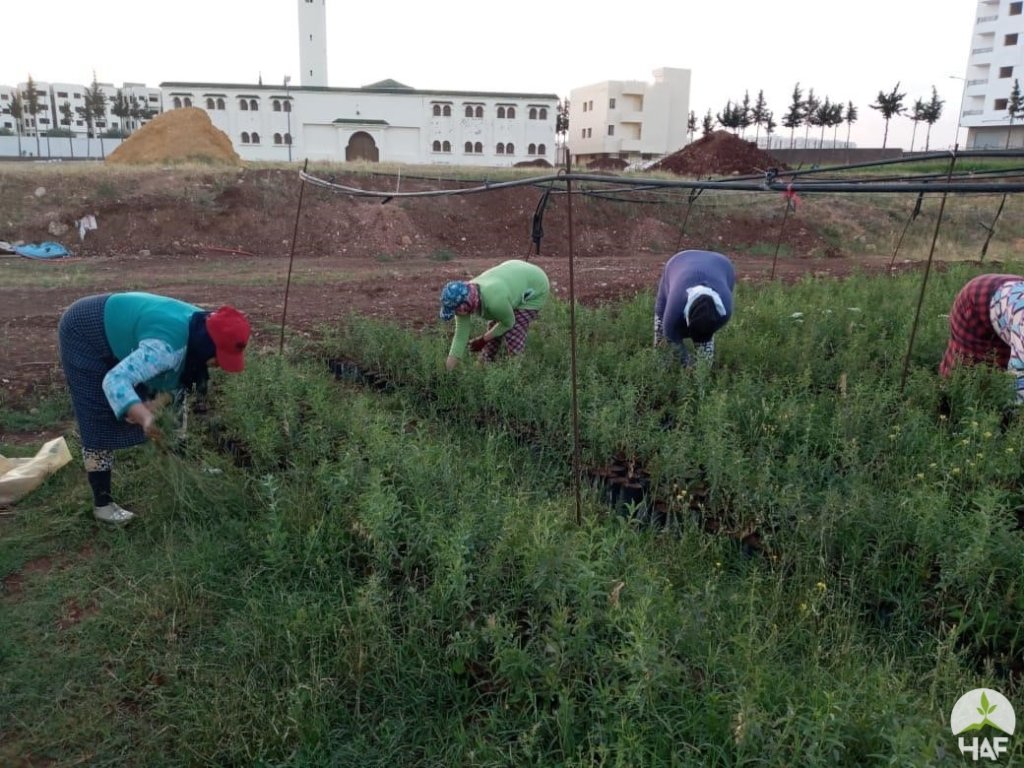By Hajiba Boumasmar | Tree Monitoring Officer
The High Atlas Foundation (HAF) uses land given in-kind by the High Commissioner of Water and Forests and the Fight Against Desertification, local associations, and cooperatives around Morocco to establish organic fruit tree nurseries which provide sustainable projects for the local population and improve the economic situation of rural Moroccan families, especially those who depend on agriculture as a source of livelihood.
HAF currently manages with local partners 11 nurseries in seven provinces in Morocco. Each one had a unique story and process for its building. This blog will focus on two HAF nurseries in the Fes province: the Abdelaziz Center for the Protection of Children (CPC) and the University Sidi Mohamed Ben Abdellah (USMBA) nurseries.
The CPC houses minors between 12 and 18 years old who have been orphaned or are otherwise in difficult situations. The CPC works with each child to educate them in order to facilitate the process of their reintegration into society in a manner that suits their desires, abilities, and preferences, and facilitates their schooling and vocational rehabilitation.
The High Atlas Foundation follows a similar strategy as that set forth by the Ministry of Youth, Sports, and Culture. As a civil organization working on sustainable development projects, we work to engage these youth in active projects. It is with this mission in mind that HAF partners with the Ministry and the “Association of Volunteer Experts,” a local NGO in Fes, since 2017. Together, the three established a 6000 m² nursery for organic fruit trees in the Abdelaziz Center.
HAF continues to develop this nursery, building three greenhouses in the process in which 145,000 olive cuttings have been planted. The process of planting olive seedlings passes through many stages, starting with placing the olive cuttings in sandy ponds in December. After five or six months the seedlings are transferred into bags that are composed of high quality soil and compost. HAF nursery managers ensure proper irrigation to keep the saplings watered. HAF nurseries also produce 20,000 pomegranate seedlings, 20,000 fig seedlings, and more than 50,000 almond seedlings each year.
HAF projects that the CPC nursery will produce another 266,000 organic fruit trees in 2021 to meet the needs of the partnering farmers, association cooperatives, and schools.
In addition to building successful nurseries and hosting tree-planting activities, HAF’s vision includes the integration of youth at the center of development projects in the agricultural field, empowering them with technologies and strengthening their tree-planting process.
The youth of the CPC have a great opportunity to learn many things about biological agriculture, such as using natural fertilizer as opposed to chemical products, and the proper steps to plant trees. Additionally, they attend workshops on proper irrigation system techniques, how to take care for seedlings, how to remove weeds, and tree-grafting techniques.
HAF also hosts workshops about the environment and climate change, which is a global issue. Some solutions to this crisis lie in raising awareness, planting more trees, and working in sustainable, environmentally-friendly projects. HAF believes that establishing environmental awareness from an early age is everyone’s responsibility.
One of HAF’s long-term goals is to create job opportunities for these youth as well as hands-on training which helps them to learn about and practice biological agriculture, establish their own companies, or work within agricultural public or private institutions. Without these kinds of training, the youth will be socially marginalized and unable to find their place among their peers.
However, thanks to the programs set up by the Ministry of Youth, Sports, and Culture to rehabilitate the youth and reintegrate them into society and the goals of HAF that focus on qualifying them in the agricultural field and enabling them to assume responsibility for their lives, we can guarantee the rights of these young people and help make them effective, productive members of society who contribute to the promotion of sustainable development in Morocco.
HAF’s principles reflect the idea that today’s child is the leader of tomorrow. Values and principles should be established during one’s childhood, one’s youth. Cooperation, commitment and discipline, as well as other values, form the basis of a responsible leader.
In 2019, in partnership with the University Sidi Mohamed ben Abdullah (USMBA) in Fes and the “Association of Volunteer Experts,” HAF established another organic fruit tree nursery at the Faculty of Islamic Theology. The nursery is on two hectares of land and includes 130,000 seedlings, 90,000 almond and 40,000 olive.
The aim of this new nursery is to provide high-quality organic fruit trees to farmers with limited financial capacity, and to encourage agricultural associations and cooperatives to preserve the natural heritage of fruit trees. Additionally, HAF will facilitate awareness-raising and training programs for students in sustainable development, the participatory approach, environment and climate change, and tree planting. It aims to plant trees alongside all institutions affiliated with USMBA in order to engage students in projects that have environmental, social, and economic impacts.
Although the nursery is still new, it has already provided work opportunities for dozens of women to support their families. These women remove weeds, fill bags with soil and compost, and plant olive cuttings or carob seeds. They are characterized by discipline and commitment. They are also detail-oriented, which is demonstrated by their attentiveness when planting seeds or removing weeds from the almond and olive seedlings.
HAF strongly upholds the belief that including women in agriculture is a very important factor in promoting sustainable development in Morocco.
The work on agricultural projects, whether with women, students, or youth in difficult situations, has an important impact on the development of our country. It’s not enough to simply raise their awareness. We must also build a space for them where they can practice what they learn. The key to cultivating a successful next generation of Moroccan families and leaders is to transform theory into real-life practice and application.
Project reports on GlobalGiving are posted directly to globalgiving.org by Project Leaders as they are completed, generally every 3-4 months. To protect the integrity of these documents, GlobalGiving does not alter them; therefore you may find some language or formatting issues.
If you donate to this project or have donated to this project, you can receive an email when this project posts a report. You can also subscribe for reports without donating.
Support this important cause by creating a personalized fundraising page.
Start a Fundraiser